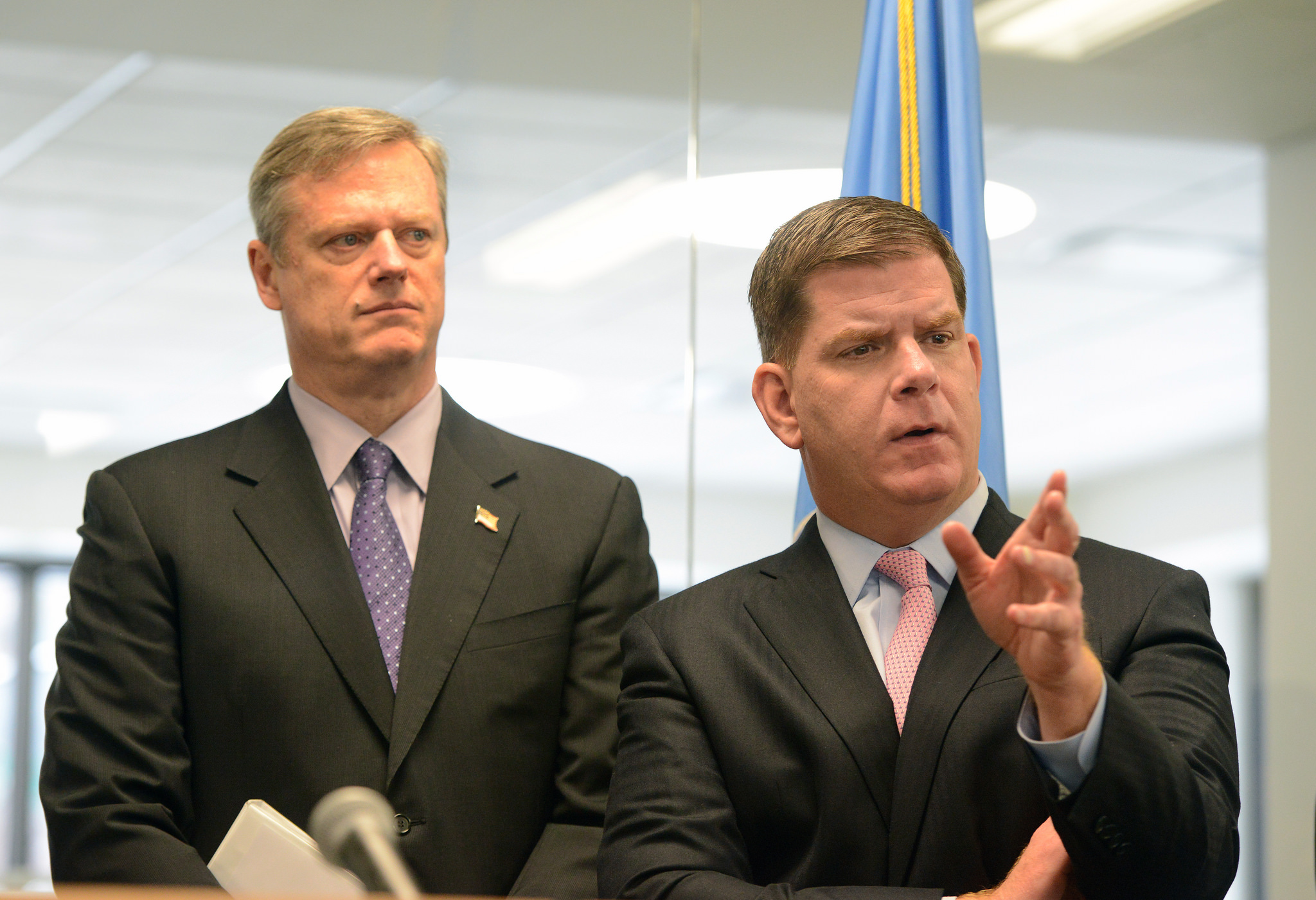GE’s New Fort Point Headquarters Could Be Rent-Free for Up to 20 Years

Photo by Isabel Leon/Mayor’s Office
General Electric announced Thursday it was under agreement with Proctor & Gamble to purchase a 2.5-acre, waterfront piece of property in Fort Point for its new global headquarters in Boston. The site at the so-called Necco Court, adjacent from the Gillette campus and just over the channel from South Station, includes two empty, six-story brick warehouses, which GE plans to rehab.
The company also intends to construct a new building on the nearby parking lot, with hopes of a 2018 move-in. But in the meantime, vice president Ann Klee tells the Globe that the Boston Redevelopment Authority would become the owner of the brick warehouses and lease them to GE for the renovation.
How the BRA would come into possession of these buildings remains unclear. (Laura Oggeri, spokesperson for Mayor Marty Walsh, tells Boston, “The details are still being finalized.” A spokesperson for the BRA declined to comment beyond her statement.) If completed, this transaction could trigger one of the perks contained in the deal that brought GE to Boston in the first place, which was crammed with $145 million in tax incentives and infrastructure improvements.
In addition to a direct local property tax relief up to $25 million, the deal ensures that GE would enjoy a rent-free lease term of up to 20 years if it occupies any properties owned or leased by the BRA. Per the agreement, GE would only be responsible for “annual operating expenses, property taxes not abated or subject to a PILOT agreement, and interior renovation cost.”
Many in Fort Point had long hoped the brick warehouses would be used for artist housing. News of GE’s letter of intent last week came as a shock to the community, which has seen an exodus of artists over the last five years as redevelopment sends rents skyrocketing.
Making his monthly visit to the WGBH’s Boston Public Radio last Friday, Walsh called GE’s move to Boston a “very big win for us” while acknowledging some of the multinational corporation’s shortcomings.
“I can’t control what they do in other parts of the world, but I know what I can do when they’re here in Boston,” Walsh said. “If they become a good corporate citizen and they invest in our city, and they’re going to employ people clearly, and they’re going to be building and doing new things, I think that’s a win for the city.”
Co-host Jim Braude asked Wash if any conversation he’s had with state officials and representatives of GE ever touched on “their excellence at not paying state and federal taxes.”
“Has anybody raised with them whether they’re going to make a commitment to actually pay taxes in Massachusetts?” Braude asked.
“No. No, because…from what I understand, when there were other parts of the country, that was the legislatures in those areas that were crafted different ways of the way they deal with taxes,” Walsh said. “The only thing that we had a conversation about here was the state and city, the up to $25 million in the city, and up to $125 million in the state. There’s been no discussion of not paying taxes. I mean, it’s important for us to get those tax revenues into the city.”
“No, I meant has there been any discussion from your end about them paying taxes?” Braude said.
“No. No.”


